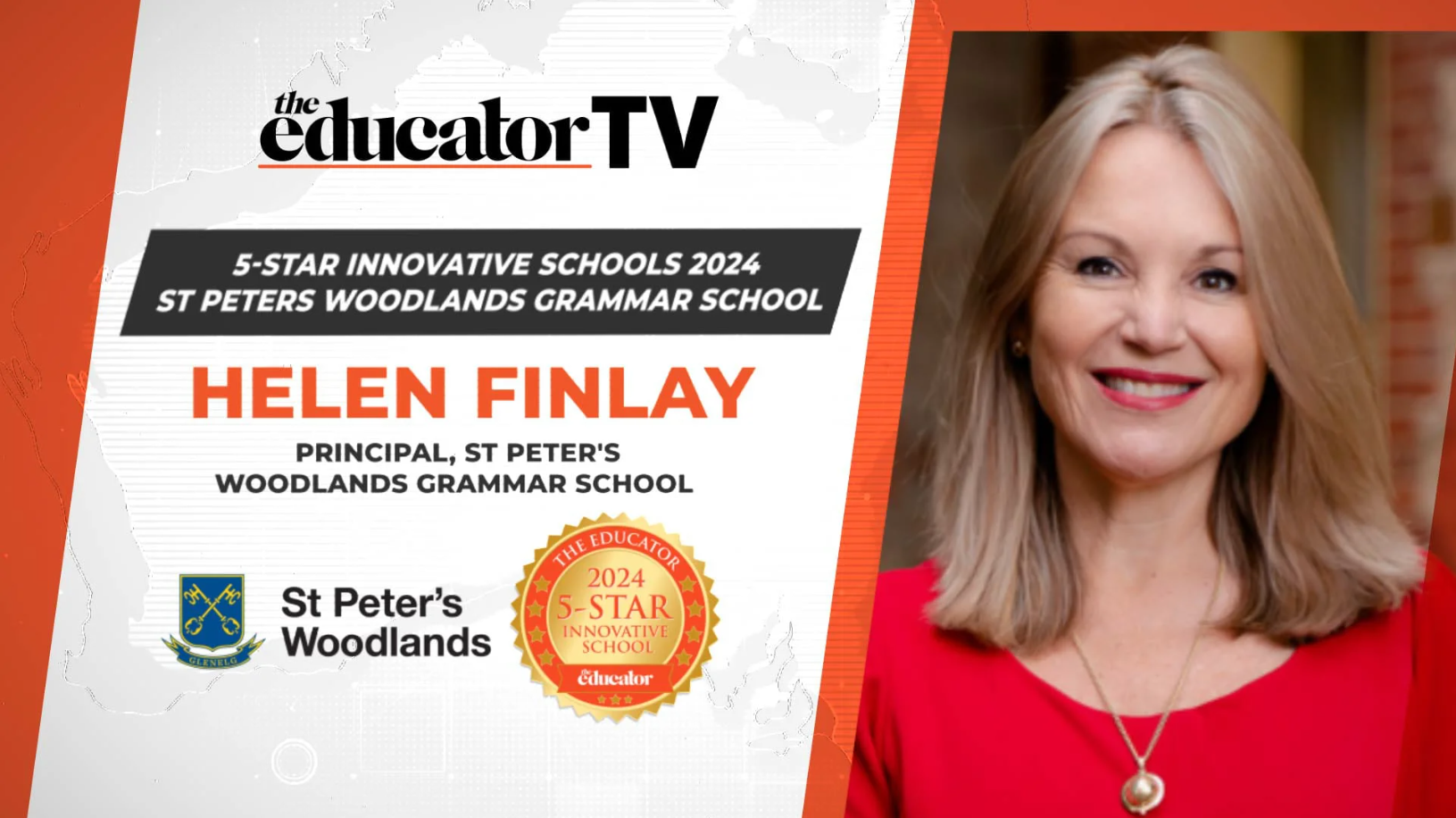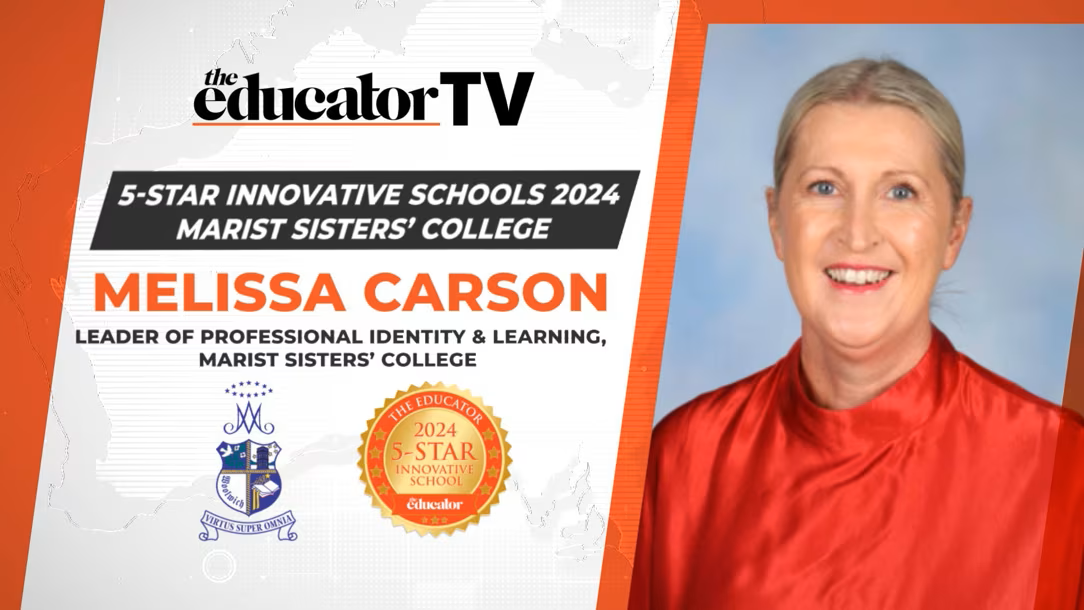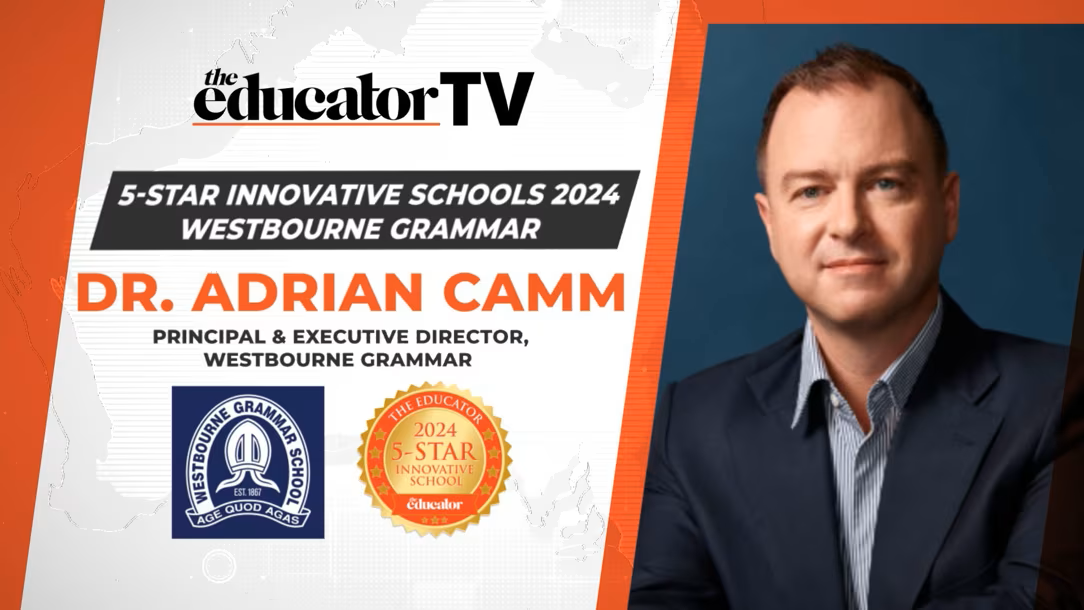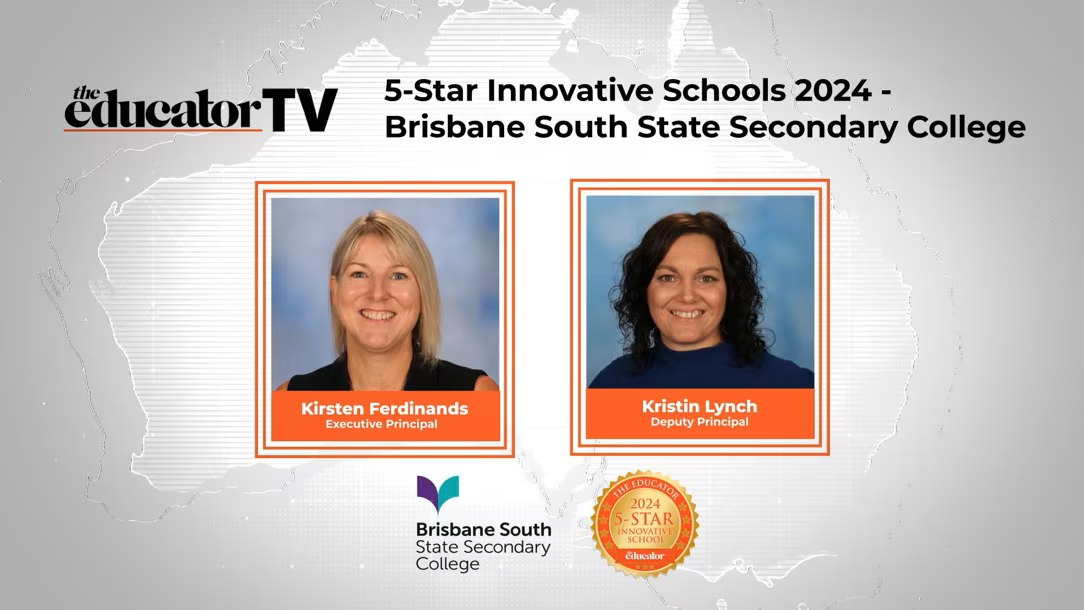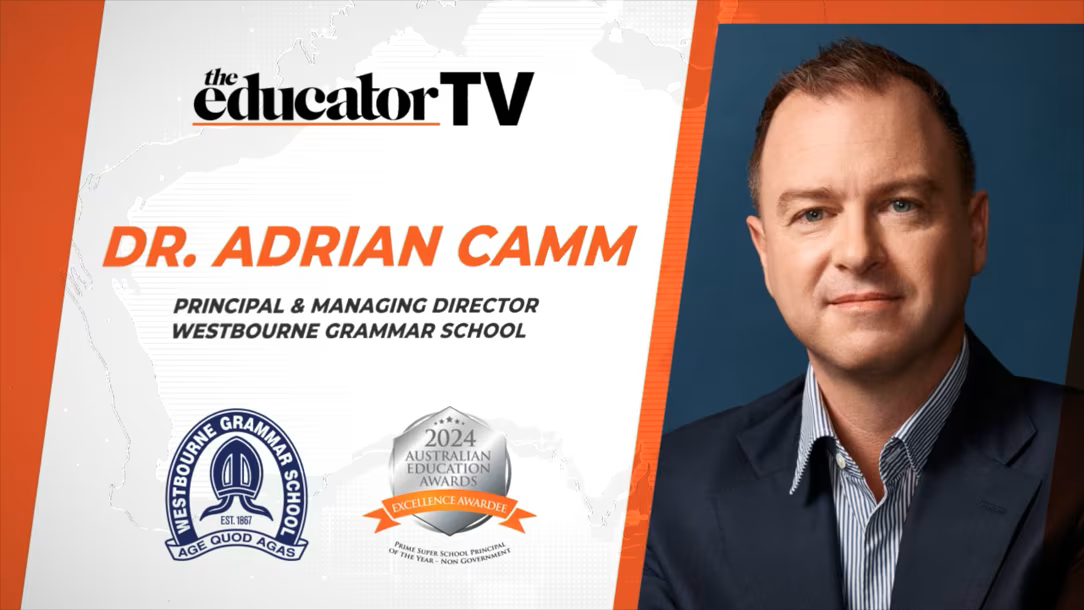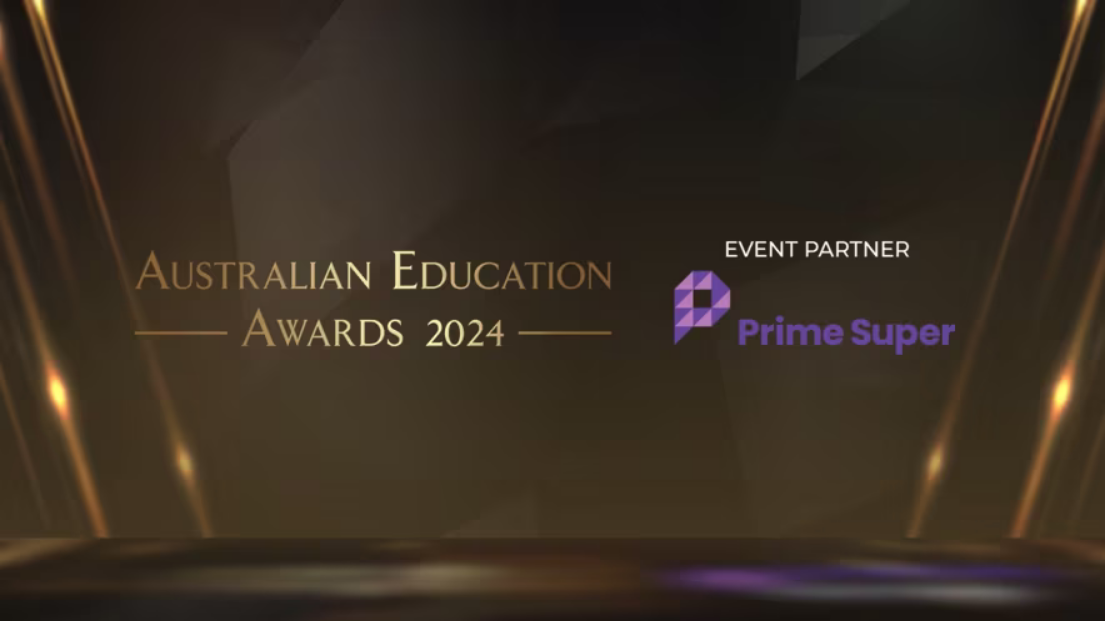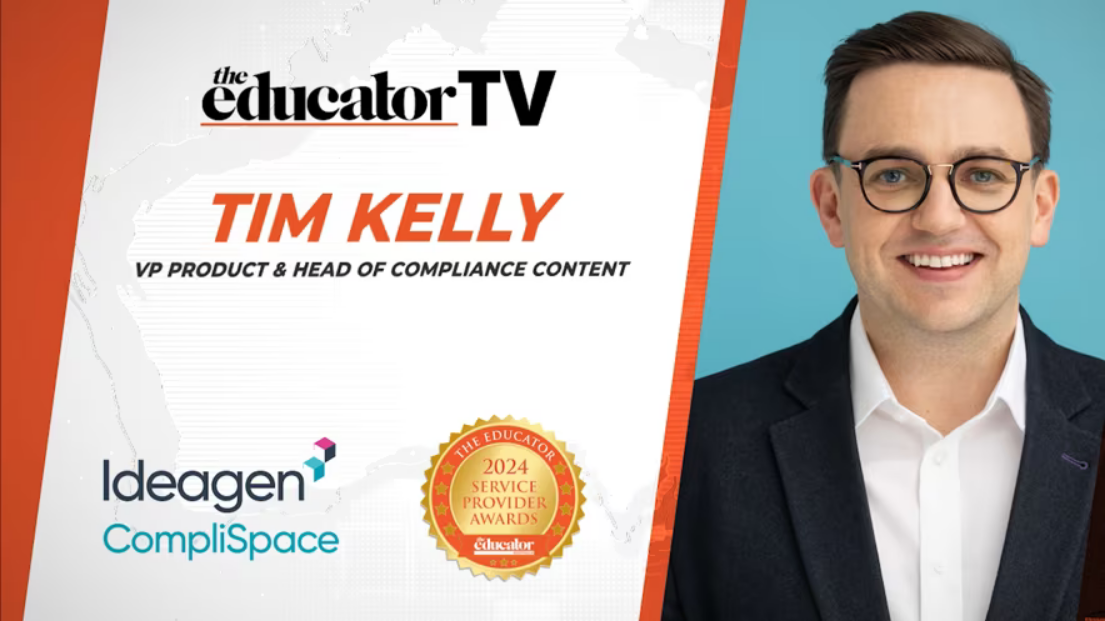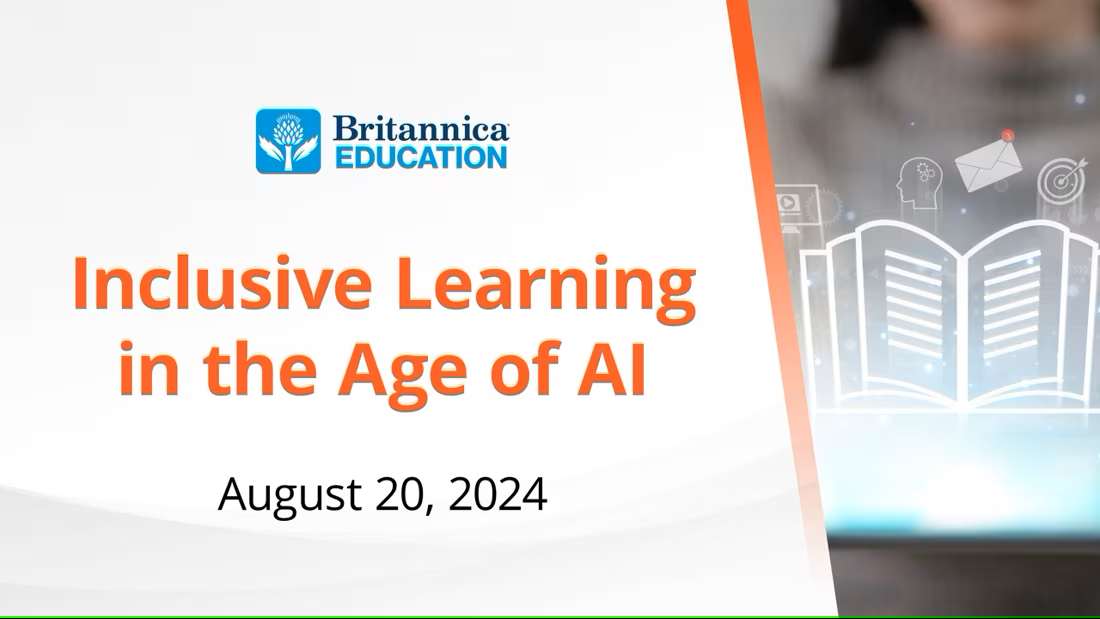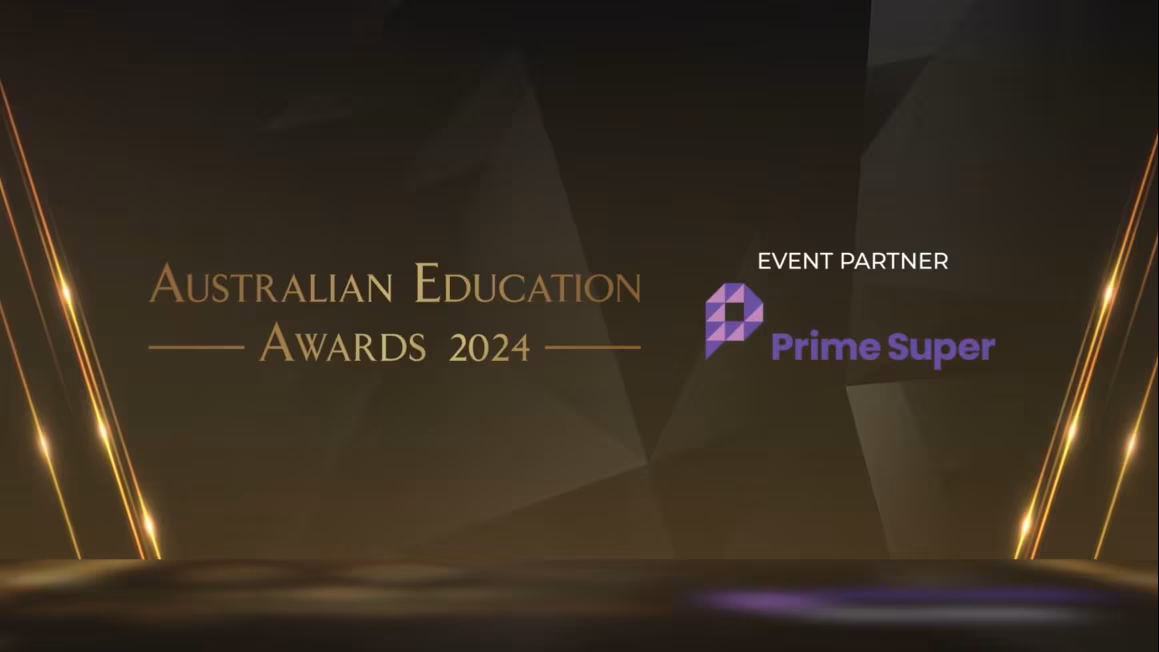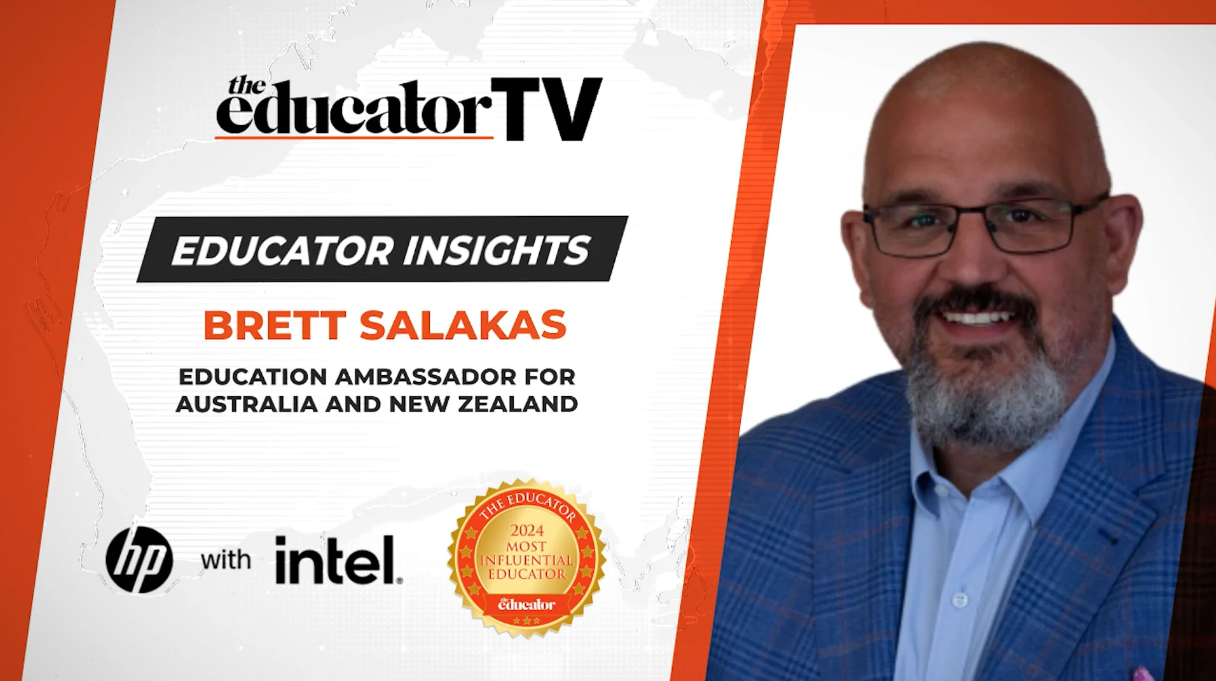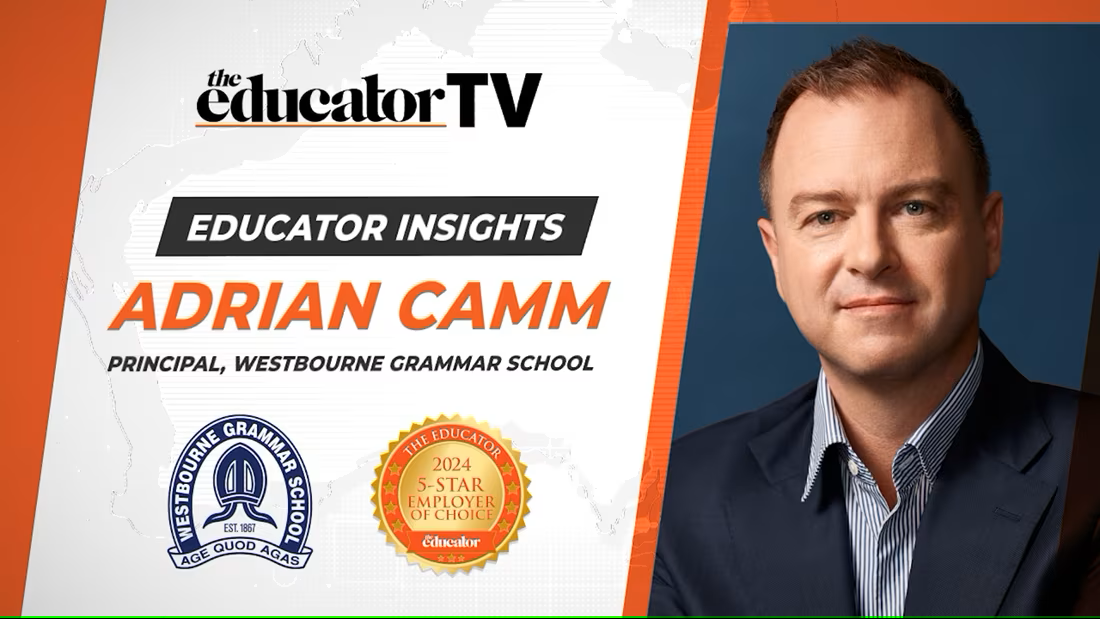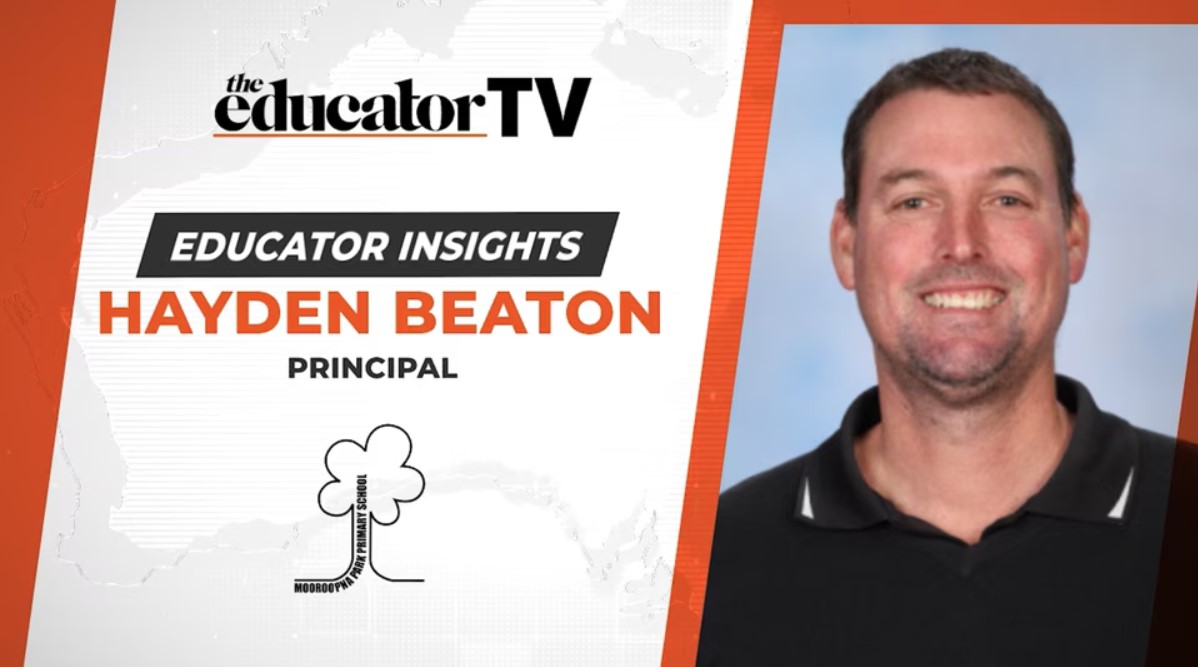Cultivating character and creativity
In this interview, Atkinson highlights the importance of leadership in educational reform, focusing on student outcomes, and building effective structures and frameworks.
To view full transcript, please click here
Kylie Speer [00:00:09] Hello, and welcome to The Educator TV. I'm Kylie Speer and we're delighted that you can join us for the latest installment of Educator Insights our inspirational education leadership series. Joining me today is Nathan Atkinson, Executive Principal at Summerland Christian College and Hinterland Christian College. With a background in K12 Co-educational Christian Schools, Nate has held diverse roles encompassing academics, pastoral care and leadership. Nate holds a Master of Educational Leadership and a certificate in K12 School Management from Harvard, along with an ongoing pursuit of a PhD in Educational Leadership. Welcome to you Nate, and thank you so much for joining us today.
Nathan Atkinson [00:00:58] My pleasure, Kylie, thank you very much for having me. And I've benefited from viewing previous episodes and lovely to make a contribution.
Kylie Speer [00:01:09] Well, firstly, Nate, can you tell us a little more about the colleges, your education programs and how many students the colleges educate?
Nathan Atkinson [00:01:18] Yeah, absolutely. have oversight over two colleges Summerland Christian College and Hinterland Christian College which are both located here in the Northern Rivers of New South Wales. Summerland Christian College has little over 600 students that we serve and Hinterland Christian College is a little bit smaller. Now we have 70 students who we serve there from kindergarten through to Year, Year 10. Here at Summerland Christian College, we have a transition to kindergarten class all the way through to Year 12. Over the last few years, we have reoriented our educational program here and at Hinterland Christian college by creating a learning framework that helps us hold together all the elements that are required to deliver the education that we desire for our students. We desire to deliver to them an expansive education that helps really build them up as young people. We've named our learning framework building Hopefield futures, which centers around the graduate outcomes that we desire for our students, we desire for them to have renewed minds, hope filled spirits, and loving hearts, as they are prepared for not only school but for life afterwards. We name six really clear dispositions are competencies that we want to integrate into our education to help us build stronger students. So we desire for them to be great critical thinkers, to be collaborative, to be strong in character, their learning character, and their Christian character. We desire for them to be creative and godly global citizens and to be effective communicators. So we weave that into our into our education, I guess you might some early say, their education is a little bit like this row. So we really want to build in both knowledge and skills and those dispositions that help them grow as young people so that they're well prepared for life. A rope of three strands is certainly stronger than the traditional one. So that's us, I guess, in in nutshell on what it is that we desire, educationally, we took some steps to formally put that into a learning framework so that we would have clarity across our college about what it is that we are doing here, we're really sold on the idea of Lyn Sharratt, that clarity is just so important in education, both at classroom level, but also at whole school leadership level. And that's allowed us to really then set about as a leadership team, in making sure that everything that happens across our college happens in a really coherent way, and so goes into the big picture. So it's an idea that we glean from Michael Fullen's work about the importance of coherence in a college.
Kylie Speer [00:04:20] Nate in your role and career as executive principal, what is it that you're most passionate about?
Nathan Atkinson [00:04:26] That's an easy one to answer and I'm sure all principals will would say the same thing and that is creating better outcomes for our students. That's just a very, very clear, outstanding passion that that I have and that our staff here at the college is certainly have and doing it in Christian environment gives us the opportunity to build in the other factors into growing stronger people and making that happen. To achieve this though, certainly passionate about aligning and building structure His end systems and frameworks across our college to make that happen. And that's just really important because those things don't happen by accident, you need to plan for them well and think about the future as well. So I'm certainly passionate about that. To support those structures, I guess I have a leaning in a bias towards investing in in leadership and building leadership structures and leaders who can action that, and I believe what the research says, and I've seen and failed, with my own eyes and eyes and heart the effect that positive leadership can have on an organization and in that way, everybody wins. So I guess I start with the overarching passion of students, then building the structures to support that and the leaders to drive it. They're the that's really the thread that makes me get up every day really excited to go on.
Kylie Speer [00:05:55] The education landscape in Australia is transforming rapidly. What changes are you most affected by? And how are you approaching their adoption?
Nathan Atkinson [00:06:07] Oh, it's a really big question. I'm aware that I don't have a lot of time to answer. But there are several challenges in Australian education at the moment. I guess I sit on the more optimistic side of the fence. When I look at what lots of those changes are. There are a lot of good, many good and talented people. And there is absolutely innovation and change and reform taking place. So I'm excited about some of the ways we're responding to those challenges. I guess the chief challenges in education for us at the moment revolve around funding, and staffing. And I'm excited about the changes that are on their way in regards to early education of our young people. And responding to the challenge of well being as well. I guess that first challenge around funding, changes to funding have presented some challenges for some regional schools. And I know some of those conversations take place in other arenas other than then in schools themselves. But I guess the charge for us is just the same. And that is to exercise wisdom and diligence in how we utilize our resources. So that student outcomes are affected by what it is that we do get. That's really important to keep our eyes on. On the main thing. When it comes to staffing, there are some particular challenges for more regional schools in in attracting quality staff. The reality is there are just fewer teachers in the pool to attract from. That's the reality. But again, there are lots of good things going on too. In response to that that issue. In a more global sense, many principals and I'm certainly one of them believe that the government could support us a little bit more significantly in raising up the profile of the profession. And I know there's a campaign soon to start. So that's really helpful and positive. I guess in a more localized way, the inauguration of school based learning hubs where schools partner with tertiary education is to co educate teachers as they're coming through is a is a really good step for lots of independent schools. Another positive. One of the things that we're doing here in the college is making sure that we have a steady stream multiple steady streams to attract quality staff. We've just started a principle Scholarship, which when we make a co contribution to the education of those who desire to become teachers, and we presently have two of our staff who are serving as learning assistants so we can give them some employment on that front and help to grow them as they trained to be teachers. So really important to be active on on the ground to support some of those more global initiatives. And I think one of the things that we're doing here is to really make sure that we're a place that grows people and provide meaning and purpose and adequate supports for our for our staff so that we might retain their staff that we do have and become attractional at the same time.
Kylie Speer [00:09:28] As you briefly mentioned, Nate, health and wellbeing practices have thankfully never been as top of mind and vital as they are right now. How are the colleges approaching this area with your students?
Nathan Atkinson [00:09:42] I think there's an obvious increase in the need to support students with well being I think it's partly to do with coming out of a COVID season, but partly to do with just a raised awareness about the importance of, of well being in in life but also As it relates to learning, I think a greater number of schools are making the realization that to teach students proactively and deliberately, the skills of well being also give a boost to their ability to learn better. So I guess in that way, as a college here, we're taking a proactive and reactive approach to supporting students in that area, taking opportunities to be able to teach the skills of well being as well as make sure that we have enough support in place on the ground or support those who have obvious well being issues that we can be supporting them with, we've employed probably, I would say, a higher than average number of learning assistants in our school, but that's because we value the way in which those learning assistants support learning, but at the same time, also support well being we support a number of students with social and emotional needs, and they're just such a valuable part of, of our education to put people to build relationships with students in that place is a really high yield strategy for us, I guess, proactively. And we do believe that this is an intelligent long term strategy, and that is to integrate into our education opportunities for our students to practice the skills of well being. And that's why it's just so important that we had those six C's that we mentioned before, the ability to think critically and collaborate, to build character, creativity, global citizenship and communication. Because as learning is designed in such a way as that students learn those things, as well as their content and knowledge. They're actually being future proofed, in a way, because the, our hope and prayer is that after 13 years of education here, they're just in a stronger position to do life. Yeah, so both of those things need to come together support and proactivity.
Kylie Speer [00:11:56] Nate, the subject of artificial intelligence is an increasingly complex one. What are your thoughts on how to best work with this technology going forward?
Nathan Atkinson [00:12:06] Oh, look like lots of thoughts. It seems nobody though, has all the answers as yet, because it's a really fast, quickly evolving situation. But I think clarifying our, our attitudes and our beliefs at this point is really an important thing to do, because that's going to inform our decision making is where we're provided with more information. That way we can be deliberate. as we as we, as we work with AI, I think my attitudes and beliefs that underpin future and current decision making, are around the idea that students need to be engaged in that process. So as we, as we figure, its place in education, we really should be doing that with students and engaging students in in that they have a knowledge of AI, they can see where it can be of some benefit to them in their learning and in life. But I think we have a responsibility also to keep the conversation alive. And probably more than that, actually, to be very deliberate in teaching them the ethical and moral skills that they need to use it with wisdom. So to see it as a as a source of information, but you continue to give them the skills they need to interpret that. And to use it in a wise way in the classroom, it's, I think it's an effective tool for them to be able to make connections with ideas, connecting ideas together, but it is just one source that needs to be evaluated alongside others. One really good and positive thing that is happening in that space at the moment, which encourages me, as an as an educator is the creation of the government endorsed, and supported taskforce to create an AI framework for education in schools in Australia. I would encourage all leaders and educators to be in the learning space with that at the moment and to be ready, but to really ever have some have some ideas on what it is that they believe and their attitudes towards it. We need to be to be ready, because it's certainly not going away. And my hunch is that it could be a really effective tool for learning in the future.
Kylie Speer [00:14:22] How can teachers and principals be better supported by relevant stakeholders to ensure you're adequately equipped to do your job?
Nathan Atkinson [00:14:35] Probably our key stakeholders at the moment would certainly be NESA and, and the relevant government, state, and federal. I think NESA could certainly as they have been doing and again, positive momentum. So let's sit on the positive side of the fence here and keep working on the nature of the education and that we can put For our young people, I think a holistic and rigorous education is one that they can be. Certainly supporting us with, with, with curriculum, that's really important. Another area in which NESA can be supporting us is by streamlining continually as they have been doing. Some of the administration that's required for us to undertake our roles, I really place a high value on the knowledge and experience of, of teachers and educators themselves so continuing to be open to the voice of those of us on the ground, who are, who are in education. There's been some really great global studies about the future of education, which is presented us with a little bit of a direction, but I think then allowing voice for local educators to figure out the how to go about doing that would really be maintain that positive momentum. You in terms of governmental support, we've just spoken about just before, how education can be boosted in the public profile, I think governments can certainly be helping us out on that front. I guess the other area is in regard to funding. And that's always a topic of conversation, I think it needs to be education is just so important and critical. In society, I think I would like to see a continued understanding of the needs of faith based schools, and our ability to provide what parents are asking us to be able to provide for their students, the idea that parents can choose the type of education they want, for their, their sons and daughters, and any anything that the government can do to make that still a really meaningful thing for families and doing everything they can to be supporting us in, in supplying that is something I'm certainly very conscious of, because we have school choice in Australia, and some families choose a faith based education. So I think that that needs to remain on the agenda, and so that all sectors can really be providing what it is that parents are seeking in education.
Kylie Speer [00:17:13] And finally, Nate, what's your number one piece of advice right now to effect positive change in education?
Nathan Atkinson [00:17:25] I think definitely in a in a more global sense, and we just touched on it, then. I think, really, what I would love to see is that those who are our key stakeholders, and those whom we rely on to go before us, really do genuinely listen to the voice of educators on the ground. The OECD report on the future of education and, and skills that that really does chart a path for us. And it has to do with the future of work and what's required, has really set a direction for us, but I think engaging the voices of educators in how that's achieved would really be significant.
Kylie Speer [00:18:16] Well, thank you so much. Once again, for your time today, Nate, it was great speaking with you.
Nathan Atkinson [00:18:21] Thank you so much for having me, Kylie, and yeah, all the best to you. Thank you so much.
Kylie Speer [00:18:27] And thank you to our viewers for watching the latest episode of Educator Insights. We look forward to seeing you again soon.



